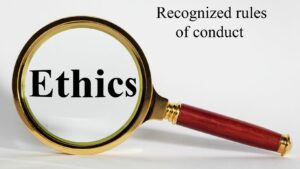Social Media in the Digital Age: History, Ethics, and Professional Uses PDF
- Evolution of Social Media: Social media has developed significantly from early platforms like Six Degrees and MySpace to today’s comprehensive networks such as Facebook and Instagram, influencing personal and professional interactions.
- Ethical Considerations: Key ethical issues in social media include privacy risks related to data sharing and the prevalent spread of misinformation, both of which demand responsible practices from users and platforms.
- Impact of Misinformation: The rapid dissemination of false information can severely affect public opinion and behavior, highlighting the need for user education and fact-checking initiatives to foster digital literacy.

- Professional Networking and Marketing: Social media enhances professional networking through platforms like LinkedIn and facilitates cost-effective marketing strategies, enabling brands to engage with their target audiences and build trust.
- Challenges of Cyberbullying: Cyberbullying remains a significant concern, with a substantial percentage of young individuals affected, emphasizing the ongoing need for effective moderation and support measures on social media platforms.
- Mental Health Effects: Prolonged use of social media is linked to increased anxiety and depression, underscoring the importance of promoting healthy online habits and encouraging users to take mindful breaks from digital interaction.
Social media has transformed the way individuals and businesses communicate, share information, and connect with one another. From its humble beginnings in the early 2000s to the powerful platforms we see today, the evolution of social media reflects broader changes in technology and society. Understanding this journey is essential for grasping its current impact on personal interactions and professional landscapes.
As social media continues to shape public discourse, ethical considerations have become increasingly important. Questions surrounding privacy, misinformation, and the responsibilities of users and platforms are more relevant than ever. This article delves into the history, ethical implications, and professional applications of social media, providing a comprehensive overview for anyone looking to navigate the digital age effectively.
Social Media in the Digital Age: History
Social media’s history is marked by rapid advancements and transformative changes in communication. Understanding its development offers insights into its current influence on society and technology.
Early Beginnings of Social Media
Social media’s roots trace back to the late 1990s with platforms like Six Degrees, launched in 1997. Six Degrees allowed users to create profiles, connect with friends, and expand networks. In 1999, LiveJournal introduced the concept of blogging, enabling personal expression and community interaction.
Evolution Through the Years
The early 2000s saw the rise of platforms such as Friendster and MySpace, which popularized networking among users. By 2004, Facebook emerged, revolutionizing user engagement with its comprehensive features. Twitter, introduced in 2006, added real-time communication, shaping the modern social media landscape.
The introduction of smartphones in the late 2000s facilitated the growth of mobile-based applications like Instagram and Snapchat, which focused on visual content and ephemeral sharing. As social media platforms diversified, they began influencing marketing, news dissemination, and political discourse.
Ethics of Social Media
Ethical issues in social media shape user experiences and societal norms. Significant concerns include privacy and misinformation, which affect both individual users and the broader community.
Privacy Concerns
Privacy remains a central ethical issue in social media. Users often share personal information, sometimes without understanding the risks involved. Data breaches have exposed personal data, leading to identity theft and harassment. In 2021, the Identity Theft Resource Center reported a 68% increase in data breaches compared to the previous year. Platforms must prioritize transparent privacy policies and robust security measures.
Additionally, user consent regarding data usage lacks clarity. Studies show that many users unknowingly consent to data sharing when accepting terms of service. Legislation like the General Data Protection Regulation (GDPR) seeks to enhance user privacy rights, enforcing stricter regulations on data collection practices. Adopting ethical frameworks for data management is essential for maintaining user trust.
Misinformation and Its Impact
Misinformation poses a major ethical challenge on social media. False information can spread rapidly, influencing public opinion and behavior. During the COVID-19 pandemic, misinformation about vaccines proliferated, hindering public health efforts. A study by the Pew Research Center revealed that 64% of Americans believed misinformation had a significant effect on the pandemic response.
Platforms face the ethical responsibility of combating misinformation while balancing free speech. Implementing fact-checking initiatives and flagging dubious content are vital steps. However, censorship can lead to accusations of bias, complicating the ethical landscape further.
Consequently, fostering digital literacy among users is crucial. Educating individuals on identifying credible sources can mitigate misinformation’s impact. Efforts like media literacy programs aim to equip users with skills to critically evaluate information.
Professional Uses of Social Media
Social media serves multiple professional purposes, transforming how individuals and organizations connect, market, and build their brand. Its widespread usage enhances networking, marketing, and brand strategies across various industries.
Networking Opportunities
Networking opportunities on social media provide professionals with direct access to potential clients, collaborators, and industry leaders. Platforms like LinkedIn facilitate connections based on shared interests and professional backgrounds. Users can join groups relevant to their fields, participate in discussions, and showcase their expertise. This interaction fosters professional relationships that can lead to job opportunities or partnerships. Furthermore, real-time communication enables quick responses to inquiries and facilitates mentorship arrangements, strengthening professional dynamics.
Marketing and Brand Building
Marketing and brand building through social media enhance visibility and engagement for businesses. Companies utilize platforms like Facebook, Instagram, and Twitter to reach target audiences cost-effectively. Regular content updates, promotional campaigns, and customer interactions create a dynamic online presence. Engaging visual content and strategic advertising harness algorithms that maximize reach. Additionally, user-generated content serves as authentic endorsements, increasing trust and loyalty among consumers. Companies analyze social media metrics to refine strategies and tailor offerings based on audience preferences, driving growth and brand recognition.
Challenges and Risks
Social media presents various challenges and risks that can impact users and society. Two significant issues include cyberbullying and mental health considerations.
Cyberbullying and Harassment
Cyberbullying and harassment occur frequently on social media platforms, affecting individuals of all ages. Studies indicate that approximately 36% of young people have experienced cyberbullying in their lifetime. The anonymity provided by online interactions often encourages aggressive behavior, leading to harmful consequences for victims. Reports show that victims of cyberbullying may face emotional distress, decreased self-esteem, and, in severe cases, suicidal thoughts. Social media companies are working to implement measures, such as content moderation and reporting features, aimed at combating these behaviors. However, the effectiveness of these measures varies significantly across platforms.
Mental Health Considerations
 Mental health considerations arise due to the pervasive nature of social media use. Research reveals a correlation between prolonged social media use and increased levels of anxiety, depression, and feelings of loneliness. Constant exposure to curated representations of others’ lives can lead to negative self-comparisons. Furthermore, the pressure to maintain a certain online persona can create stress and feelings of inadequacy. Initiatives promoting digital literacy and healthy social media habits aim to mitigate these adverse effects, encouraging users to take mindful breaks and engage in positive online interactions.
Mental health considerations arise due to the pervasive nature of social media use. Research reveals a correlation between prolonged social media use and increased levels of anxiety, depression, and feelings of loneliness. Constant exposure to curated representations of others’ lives can lead to negative self-comparisons. Furthermore, the pressure to maintain a certain online persona can create stress and feelings of inadequacy. Initiatives promoting digital literacy and healthy social media habits aim to mitigate these adverse effects, encouraging users to take mindful breaks and engage in positive online interactions.
Communication and Societal Interaction
Social media’s journey through the digital age reflects profound shifts in communication and societal interaction. Its impact extends beyond casual connections to ethical dilemmas and professional opportunities.
Navigating this dynamic landscape requires awareness of privacy concerns and the spread of misinformation. Users and organizations alike must prioritize digital literacy and ethical practices to harness social media’s potential while mitigating its risks.
As social media continues to evolve, embracing responsible usage will be essential for fostering healthy interactions and maximizing its benefits in both personal and professional realms.

